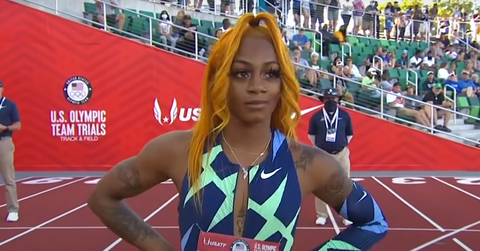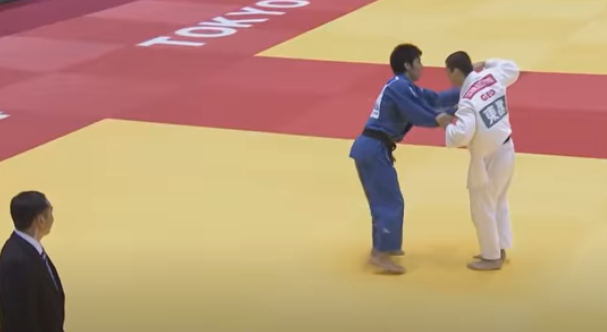Here's the Official COVID-19 Protocol for the Tokyo Olympics
Published June 23 2021, 10:09 a.m. ET

The 2020 Tokyo Olympics were officially postponed due to the COVID-19 pandemic, and even though most of the world is slowly ditching the "new normal" in favor of the "old normal," there are many who are still concerned about contracting the coronavirus.
Vaccinations are being rolled out more and more frequently, but there's still a chance that athletes, who are traveling from all over the world to participate in the Olympic games will be at risk of contracting COVID-19. So what happens if an athlete gets the virus?
What happens if an athlete gets COVID at the Olympics?
The games are officially set to start on July 23, 2021, but the event's still going to be called Tokyo 2020 (probably as means of attempting to redeem the dumpster fire of a year that was unkind to so many). The Olympic committee understands that there's still a threat of athletes and attendees catching COVID, so they've published The Playbook.

The Playbook is a guide that touches on all operational protocols for the 2020 (2021) Olympic Games in Tokyo, and it includes how to handle potential COVID-19 cases.
It's important to note that event organizers aren't stipulating that participants must be vaccinated, but competitors must take two separate COVID-19 tests 96 hours before departing to Japan.
Their tests must come back negative before they can even check in at the airport. Once they arrive in Japan, they must take another COVID-19 test upon entering the country, which must also come back negative. After gaining entry into the country, they are then required to quarantine for no less than three days.
Athletes aren't off the hook for testing after that, however. They will then receive rapid saliva Antigen tests daily.
Athletes are also asked to wear face masks when they aren't eating, sleeping, training, or competing, and they are also told to avoid gratuitous physical contact, like hugging and kissing, which may prove problematic given some of the salacious stories that come out of the Olympic Village.
The Playbook also insists that athletes only use Olympics-approved transportation vehicles and avoid other commuting means during their time in Tokyo, and there will be temperature checks every time an athlete enters a venue.
If, with all of these guidelines and precautions in place, an athlete still contracts COVID, they are immediately expected to quarantine and will not be allowed to compete.
Others who were in direct contact with the athlete must isolate themselves for two days while taking additional COVID tests, and those decisions will be made on a "case by case basis," per Yahoo News.
Are people allowed to watch the Olympic Games live?
Nope. If you're trying to travel to Tokyo during the Olympics to cheer on your country's athletes, you can't. You'll have to tune in from the comfort of your own home. Japanese fans will get to watch the games in person, however. The venue's only allowed to be at 50 percent capacity, meaning a maximum of 10,000 people will be present at all times.
NBC's going to be airing the Olympics on both network television and through its various streaming services. You can learn more about how to watch the games and specific events here.